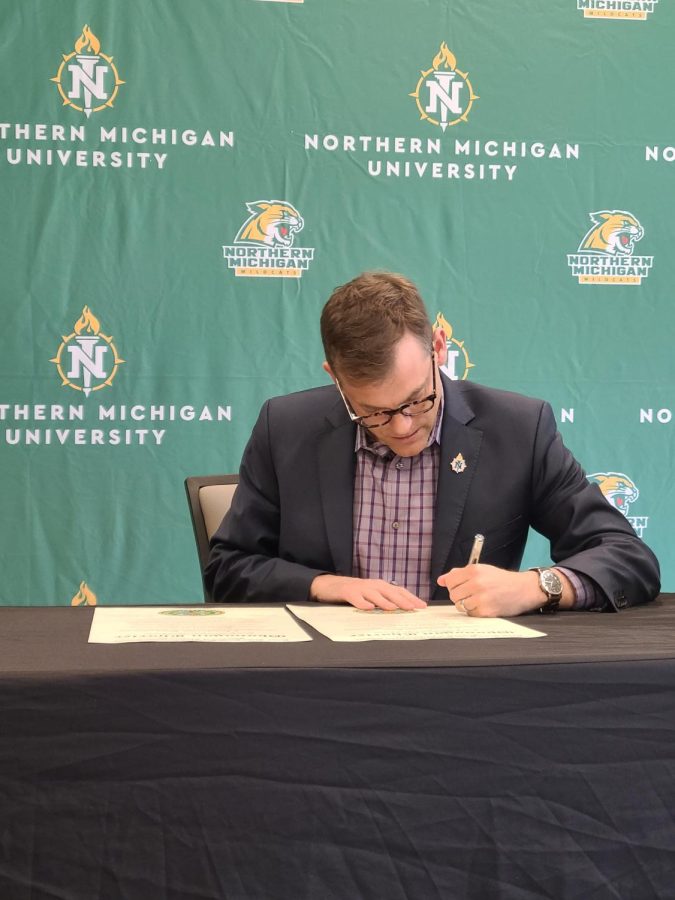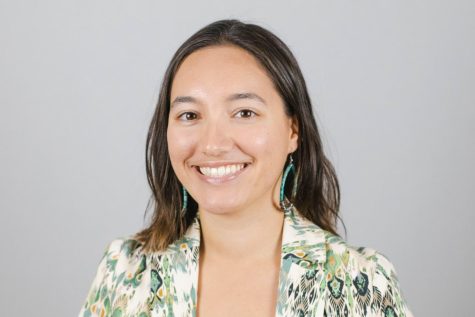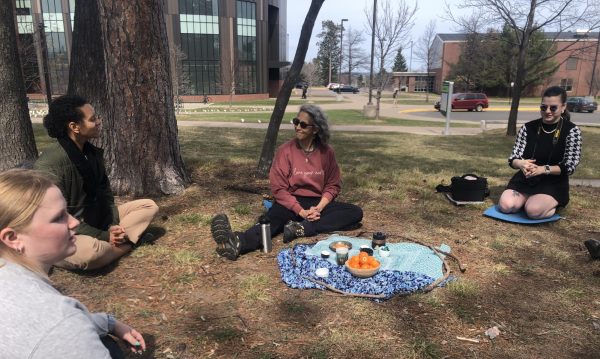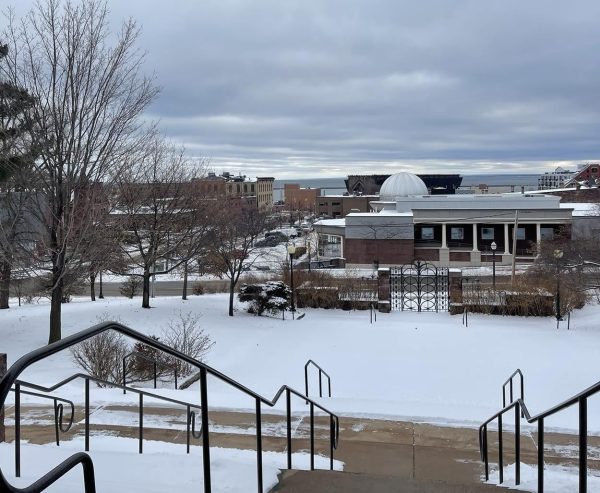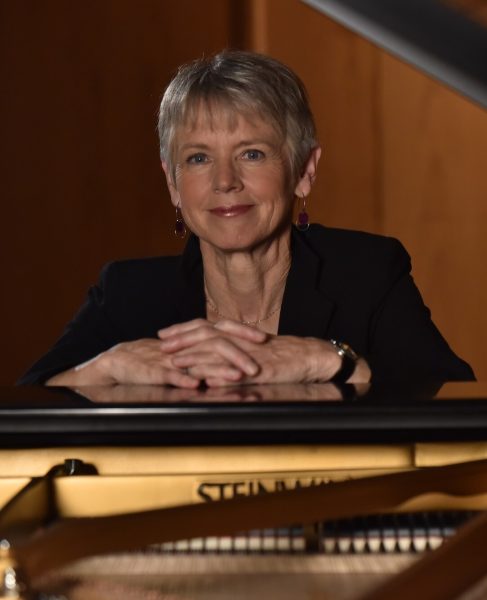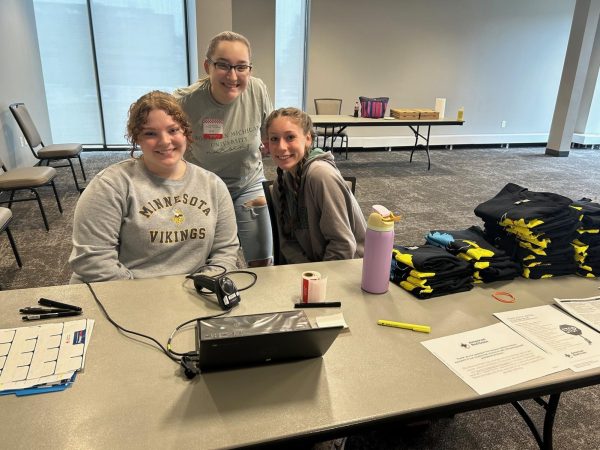Tessman signs Okanagan Charter, committing to holistic health for NMU
OFFICIAL SIGNING — President Brock Tessman formally signs the Okanagan Charter on April 26. The charter is a commitment by NMU to support and implement holistic health programs and initiatives for students, staff and faculty.
April 28, 2023
On Wednesday, April 26 at 1 p.m. NMU President Brock Tessman signed the Okanagan Charter and formally committed NMU to “embed health into all aspects of campus culture and to lead health promotion action and collaboration locally and globally,” according to the charter.
With Tessman’s signature, NMU became the seventeenth university in the United States to commit to the holistic health commitments outlined in the Okanagan Charter. The charter was created in 2015 at the International Conference on Health Promoting Universities and Colleges at the Okanagan campus of The University of British Columbia. The goal of its creation is to create an adaptable framework for higher education institutions to promote health and wellbeing for students.
“A lot of really great things are happening at Northern Michigan University already in those areas,” Tessman said. “But I think that the signing of the charter reflects a new level of commitment as we look to the future and as we think about new ways to leverage our teaching, our research and our service in promotion of health and well being.”
The prompting behind NMU’s signing of this charter came about during former President Kerri Schuiling’s time in office, following a series of mental health outcries from students. During the summer of 2022, former Board of Trustee member James Haveman was hired to conduct a Healthy NMU report which included interviews of students, staff and faculty.
One of the results of the report suggested the signing of the Okanagan Charter and developing more localized wellbeing resources for students, faculty and staff.
“What this charter does is it allows the campus to really rally around a theme of wellness and health and community,” Haveman said. “I think this charter will go far to really encourage the campus to become a healthier campus.”
The signing of the charter does not actually commit to any specific actions from administration, but instead provides a framework and goals to work within. Some of the concrete actions discussed to be implemented include the hiring of a lead diversity officer who will be a part of President Tessman’s staff as well as more diversity and wellness staff in the new wellbeing center.
“It is not up to a single diversity officer to shoulder the burden or move the needle forward on that front,” Tessman said. “But having very visible elevated leadership positions allows us to align all of the good work, align all of the resources and add some additional vision to what this campus wants to achieve in terms of wellbeing, health promotion, diversity, and I really don’t want to leave off sustainability because that is an important part of the charter as well.”
Both Tessman and Abigail Wyche, NMU’s special advisor for campus mental health and Wellness, pointed out that the project phase of NMU’s commitment to holistic wellness has just begun and new ideas will continue to be implemented throughout the following months and years.
“As we’ve come to this point, we’ve tried to work very hard to include voices of students from diverse backgrounds, including Indigenous backgrounds,” Wyche said. “As we are moving into the project phase and implementing new programs and services, we also will be hiring new positions, filling new positions for those. And as we’ve done some of those searches, we’ve been very intentional about inviting student leaders from the different diversity student organizations to take part in those interviews.”
The inclusion and collaboration with Indigenous, Black and other communities of color on campus will hopefully continue and increase, as holistic health does not have a one-size-fits-all solution.
“I’m very grateful to see Northern putting a commitment to Indigenous representation and Indigenous voices,” said Shelby Boggs, a student double majoring in social work and Native American Studies as well as a tribal citizen of the Sault Saint Marie tribe of Chippewa Indians. “It gives me hope, because it’s more than just performative activism to say that they’re going to make an institutional commitment to holistic health based upon Indigenous ideologies, because holistic health is rooted in Indigenous cultures worldwide.”





















